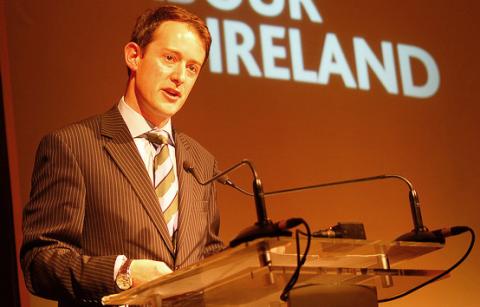An Irish SOPA: More haste, less speed?

Rushing through legislation to provide for ISP blocking in Ireland via the mechanism of a Statutory Instrument is entirely inappropriate. By Fiona de Londras.
Last Sunday Adrian Weckler had a piece in the Sunday Business Post reporting a conversation with Minister for State Séan Sherlock, about his intention to introduce legislation that would provide for extensive ISP blocking in Ireland (summary on TJ McIntyre’s blog). Detail is somewhat light, although unsurprisingly so really, as the provisions are to be contained in a Statutory Instrument and therefore will not be susceptible to open parliamentary debate and contestation. Minister Sherlock is engaging extensively on this matter on his twitter page, and argues that the SI simply clarifies the law in light of the decision in EMI v UPC; the difficulty seems to be in terms of clarity and scope.
In essence, the idea is to allow for websites that carry copyrighted material to be blocked, which on the face of it seems to be a laudable enough objective. After all, the holder of intellectual property does require protection from piracy, and it is quite legitimate for the state to undertake steps to prevent illegal copyright infringement. The core difficulty from a human rights perspective is the potential scope of this power.
As my colleague TJ McIntyre noted in his three posts on the proposals (to be found here, here and here) it is quite conceivable that a broadly worded power of this nature would permit of the blocking of sites where there is incidental copyright infringement but whose primary purpose is not the facilitation of such infringement. Examples certainly include Facebook, YouTube and Twitter, but there are undoubtedly more. These sites may carry copyrighted material as a result of user activity, but that is incidental to their purpose and they have such significant capacity for information sharing, the mobilisation of the populace, and the progressive realisation of rights (especially against repressive regimes, laws and proposals) that to block them for such incidental infringement would seem prima facie disproportionate.
This may well result in a violation of individual rights, which the European Court of Justice addressed in respect of filtering processes in Sabam v Scarlet:
the protection of the fundamental right to property, which includes the rights linked to intellectual property, must be balanced against the protection of other fundamental rights…in the context of measures adopted to protect copyright holders, national authorities and courts must strike a fair balance between the protection of copyright and the protection of the fundamental rights of individuals who are affected by such measures.
It is quite legitimate for the state to attempt to introduce a mechanism that would fairly balance the intellectual property rights of copyright holders and the freedom of expression and right to receive information of internet users in Ireland. Progressing this process through an under-deliberated Statutory Instrument is an inappropriate approach. Fully debated legislation with extensive consultation and a full rights-related impact assessment would be preferable. The Minister seems inclined to introduce this Statutory Instrument and attendant power by the end of January or, at the very least, quickly thereafter. The idiom “more haste, less speed” comes to mind. It is of course possible that an SI would be applied and interpreted in a manner that ensures proportionality, and we know from experience that full parliamentary consideration is no guarantee of a rights-proofed piece of law, but I think it’s fair to suggest that a fuller and – crucially – slower deliberative process is relatively more likely to generate better law.
A website with information and a petition has been established: stopsopaireland.com
Originally published on Human Rights in Ireland under a Creative Commons by-nc-nd 3.0 license.
Image top: The Labour Party.
